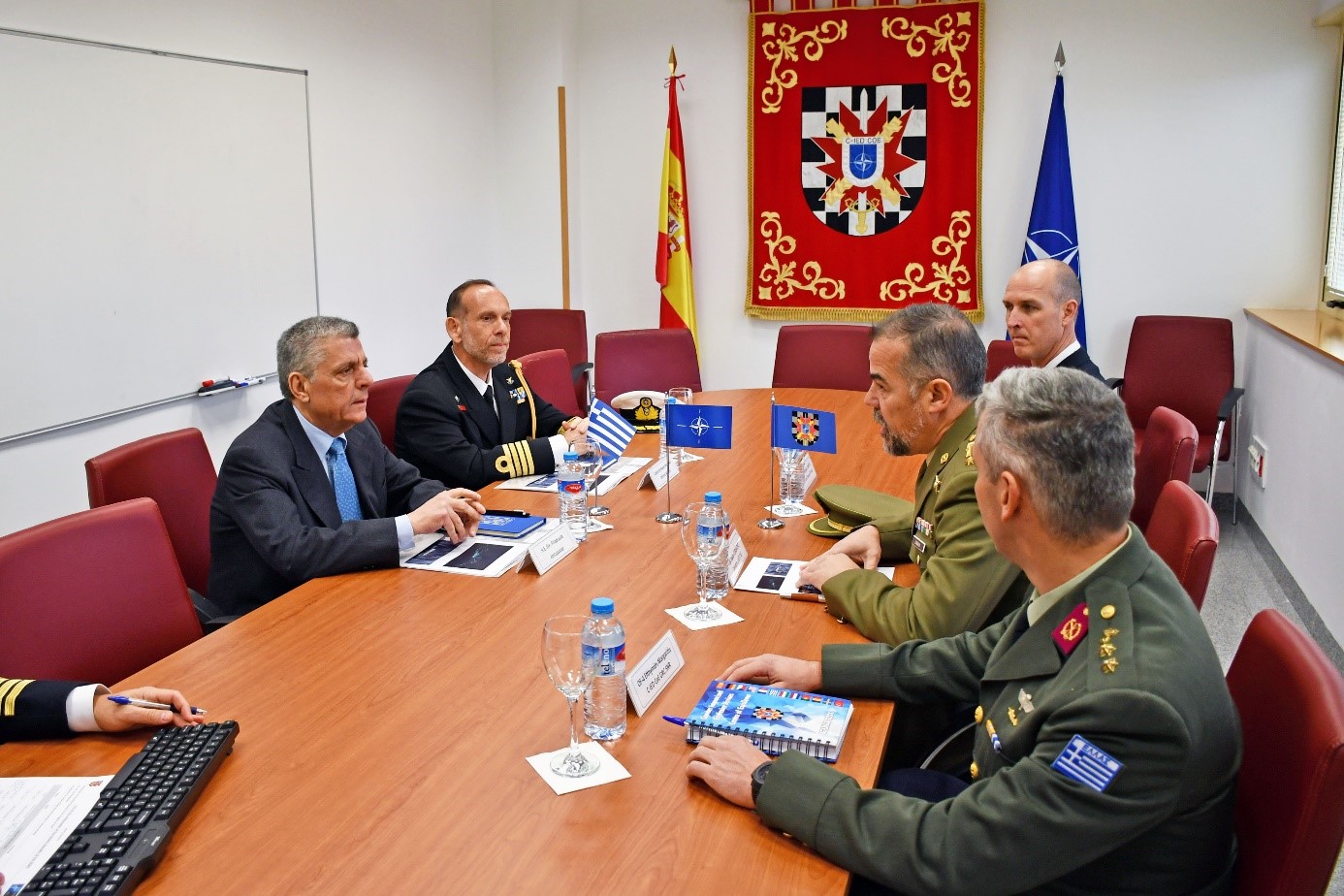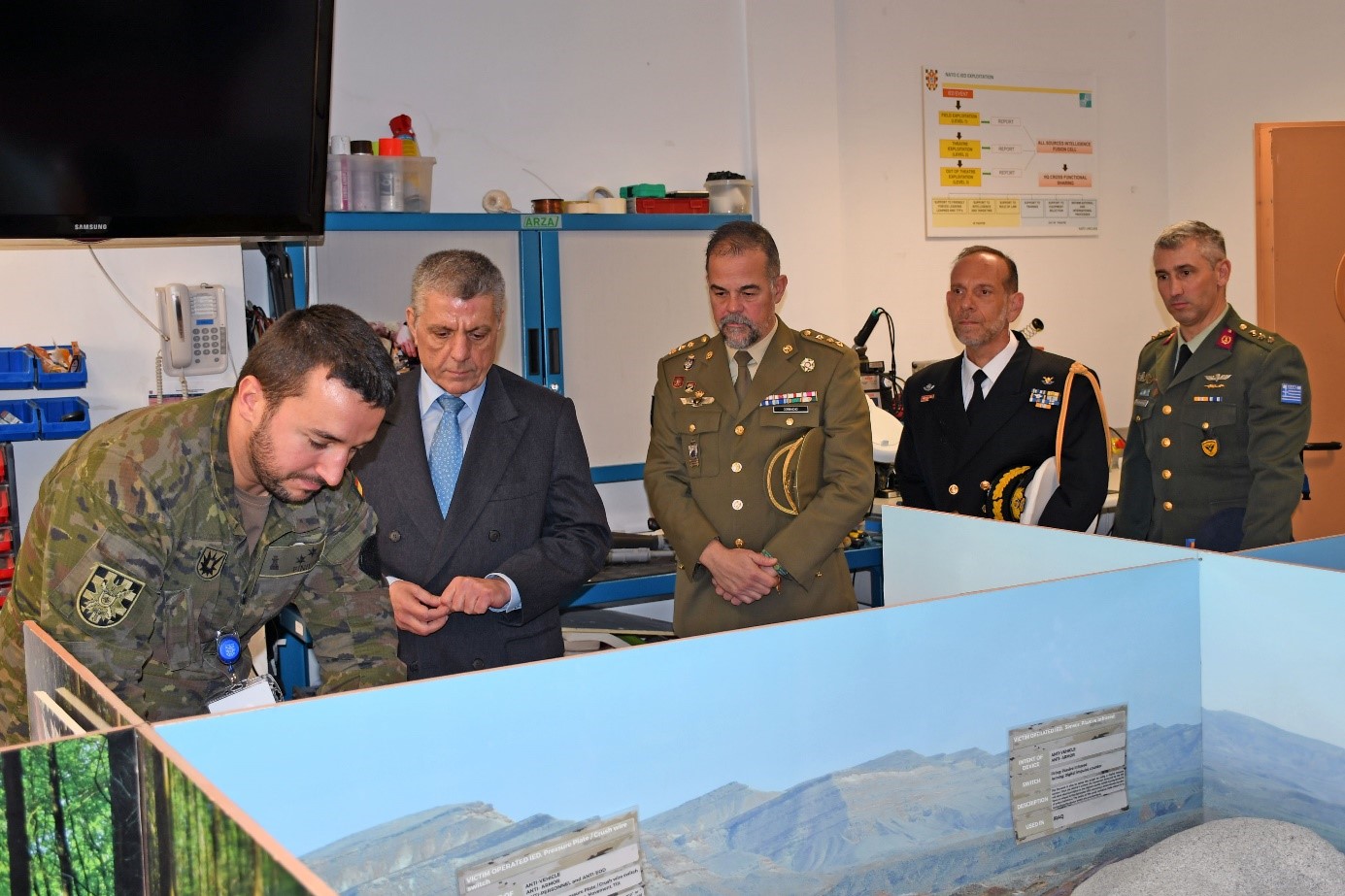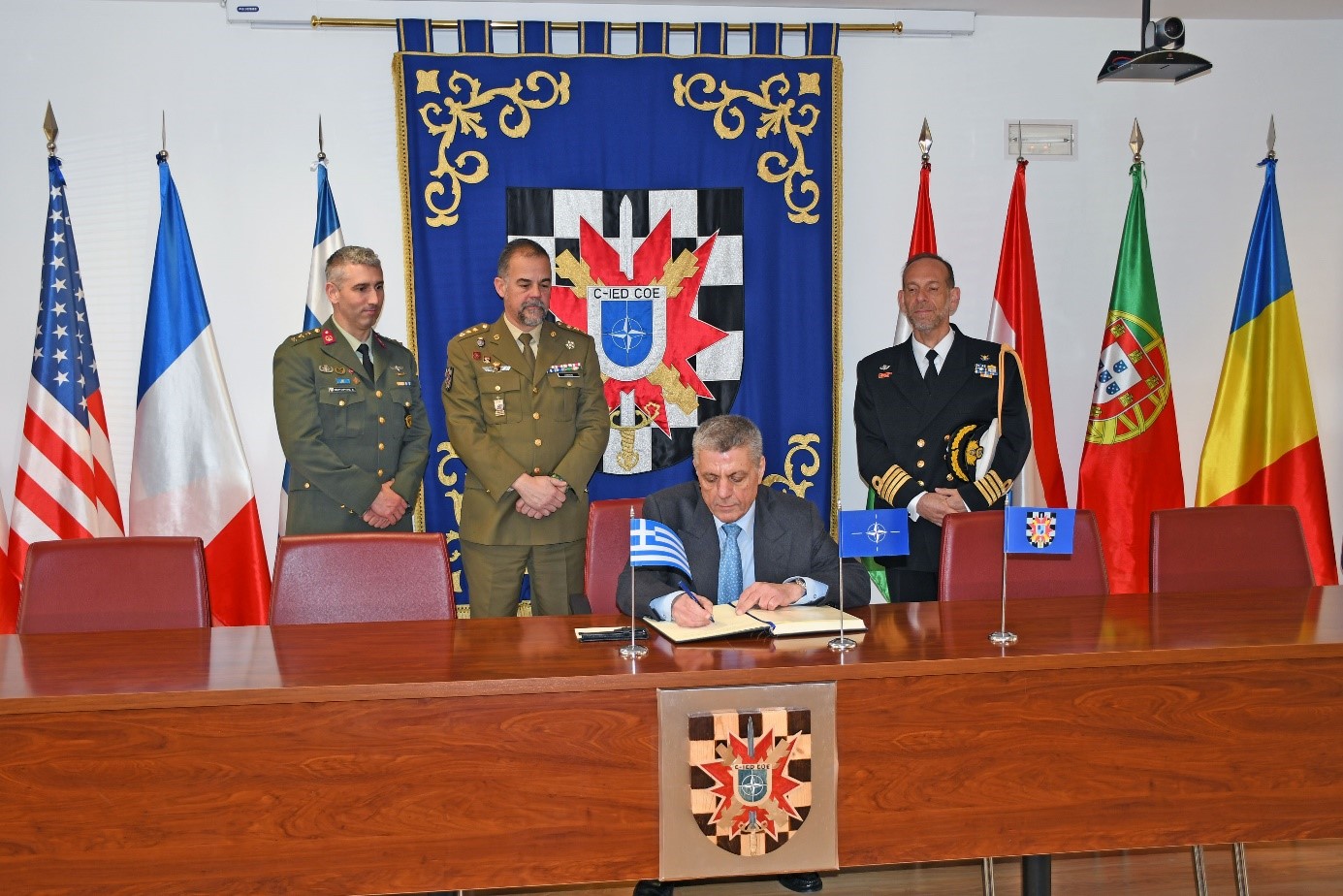
Greek ambassador visits the Centre of Excellence Against Improvised Explosive Devices
- The diplomat has been able to learn details about how it works and the work carried out by the Greek staff stationed at the centre.
The Greek Ambassador to Spain, Ilias Fotopoulos, accompanied by the Defence Attaché, Captain Marios Arvanitakis, has visited the Centre of Excellence Against Improvised Explosive Devices (C-IED COE), where he was received by its Director, Colonel Javier Corbacho Margallo, and by representatives of the twelve nations that form part of the Centre.
During the visit, the ambassador received a presentation from the Colonel-Director about the Centre's many research, analysis and training activities and its position as a NATO reference centre in the fight against C-IEDs. In his presentation, Colonel Corbacho stressed the importance of the fight against IED systems, which is not only their most visible aspect, the explosive and its effects, but also all of the networks that lead to their design, preparation and emplacement. Intelligence and training in of the Force in these areas are the main focus of the Centre's work.
During the ensuing discussion, the Greek diplomat showed his interest in the evolution of the C-IED fight in relation to the latest world events. He also expressed his satisfaction with the Greek staff stationed at the Centre, from whom he was able to learn first-hand about their work.
After the presentation, the Ambassador visited the facilities and was greatly impressed with the work of the Centre's staff. Before leaving, he signed the Book of Honour.
The Hellenic Republic was the last of the twelve nations that make up the Centre to adhere to the Memorandum of Understanding for the establishment of the C-IED COE in Hoyo de Manzanares and its functional relationship with the Supreme Allied Command Transformation (SACT) in 2019. Since then, the Hellenic Republic has had an officer permanently stationed at the Centre whose functions fall within the Artefact Defeat Group, Detection Section.
Fotos




